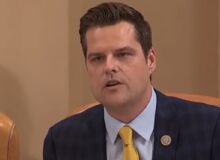It would be very difficult for Hollywood to script a better golf season than the one that played out in real life this year, culminated by a 1:30 a.m. Central Time climax, live from Korea, of a remarkably entertaining President’s Cup.
More on the President’s Cup, momentarily.
First, the rest of the season: We entered 2015 with Rory McIlroy threatening to go all Tiger Woods on us and dominate golf in a way that left little intrigue or real sense of competition. But McIlroy, while still having a good year by most people’s standards — two victories in the United States — took a step backward, one which allowed a tremendous group of young golfers to come to the fore and create a storyline and friendly rivalries that could keep us marveling for years.
Jordan Spieth, of course, won the first two majors — the Masters by a dramatically large margin, the U.S. Open in a see-saw nail-biter. He then came about two inches from joining a playoff in the third, the British Open (finishing fourth), and then finished second at the PGA to boot. He also won three other tourneys, including the season-ending Tour Championship, to top off a one-man season for the ages and grab the top spot in the official world golf rankings.
Yet, amazingly, he didn’t have all the headlines to himself.
Jason Day of Australia also won five times, including the PGA and a national championship (the Canadian Open), while finishing in the top 10 at the U.S. Open despite a scary bout of vertigo and tying Spieth for fourth, one stroke short of the playoff in the British Open. He finished the year only fractions of a point beneath Spieth in the world golf rankings.
Then there was the long-awaited emergence of Ricky Fowler, putting on a phenomenal charge to win the Players Championship, winning once in Europe as well, and winning a late-season tourney in the U.S. to top off his year.
Dustin Johnson, coming off what was widely reported to be a drug suspension, won one tourney, came within a brain-cramp three-putt of winning the U.S. Open, and led the British Open after two terrific rounds only then to falter badly. But he clearly will be in the mix for years to come.
South Africans Louis Oosthuizen and Charl Schwartzel both returned to seriously good form, and were joined by young Branden Grace, who came quite close to winning both the U.S. Open and the PGA before posting a mind-boggling 5-0 record at the President’s Cup.
Bubba Watson won twice and was in contention in almost every tourney he entered; and Zach Johnson gutted out a second major championship, the British Open, and then gave God the glory for it.
There is a real chance that we’ll have five or even ten years of fierce, fun competition for golf’s top prizes by McIlroy, Spieth, Day, Fowler, Dustin Johnson, the three South Africans, and perhaps Martin Kaymer of Germany.
On top of all that came a President’s Cup at a wonderfully strategically designed Jack Nicklaus course near Inchon, South Korea — a first-time crucial golf event for Asia.
And then, after more twists and turns and nerve-wracking developments than Robert Ludlum could invent if he were to write golf stories instead of Bourne thrillers, the whole match came down to three final holes being played by South Korea’s own Sang-Moon Bae, playing for pride of country just weeks before he is due to give up golf for several years to serve in his country’s military, and Bill Haas, third-generation golf star from his family and the son of widely liked and respected team captain Jay Haas.
Jay Haas had chosen his son as a “captain’s pick” for the team, because Bill fell just short of qualifying for the top ten spots on his own. Jay would have been damned either way: It would have been odd not to choose the 11th place points finisher for a 12-man team when the 10th and 11th finishers were so close while the 11th, Bill, had been playing well at season’s end. But if he chose his son, he would of course be charged with a sort of nepotism.
And Bill darn well knew that if he didn’t win the final match, with the two teams tied except for his match, his father would be second-guessed from here to eternity.
But Haas the son delivered beautifully. With a one-up lead going into the final three holes, he hit nothing but good shots on all three tricky, wind-whipped holes, securing pars on the first two (16 and 17) and positioning himself with about a seven-foot putt for birdie at the last.
With the whole Cup riding on the result, he stayed (as Dante wrote) “firm as the tow’r that never shakes its top, whatever wind may blow.”
Bae, who had played bravely and skillfully all week long, doing himself and his country proud, stayed right on Haas’ heels, but couldn’t break through. Finally making a mistake from which he could not recover — a duffed pitch, from a very tricky position — Bae finally had to concede his match, and the Cup, to Haas and the Americans on the final green.
The interviews afterward were classic, with Jay Haas, usually imperturbable, being unable even to get out words, so overcome was he by the emotion of watching his son “come through” so classily.
It was a fantastic end to a fantastic season.
And it bodes well for many seasons to come.
Addendum: I just realized I forgot to mention one of the most wonderful little side stories from this past golf season, which was the victory, at age 51, of the deservedly well-admired Davis Love III, a class act. He played beautifully to win in Greensboro, making him the third-oldest PGA Tour winner ever. Great stuff.






